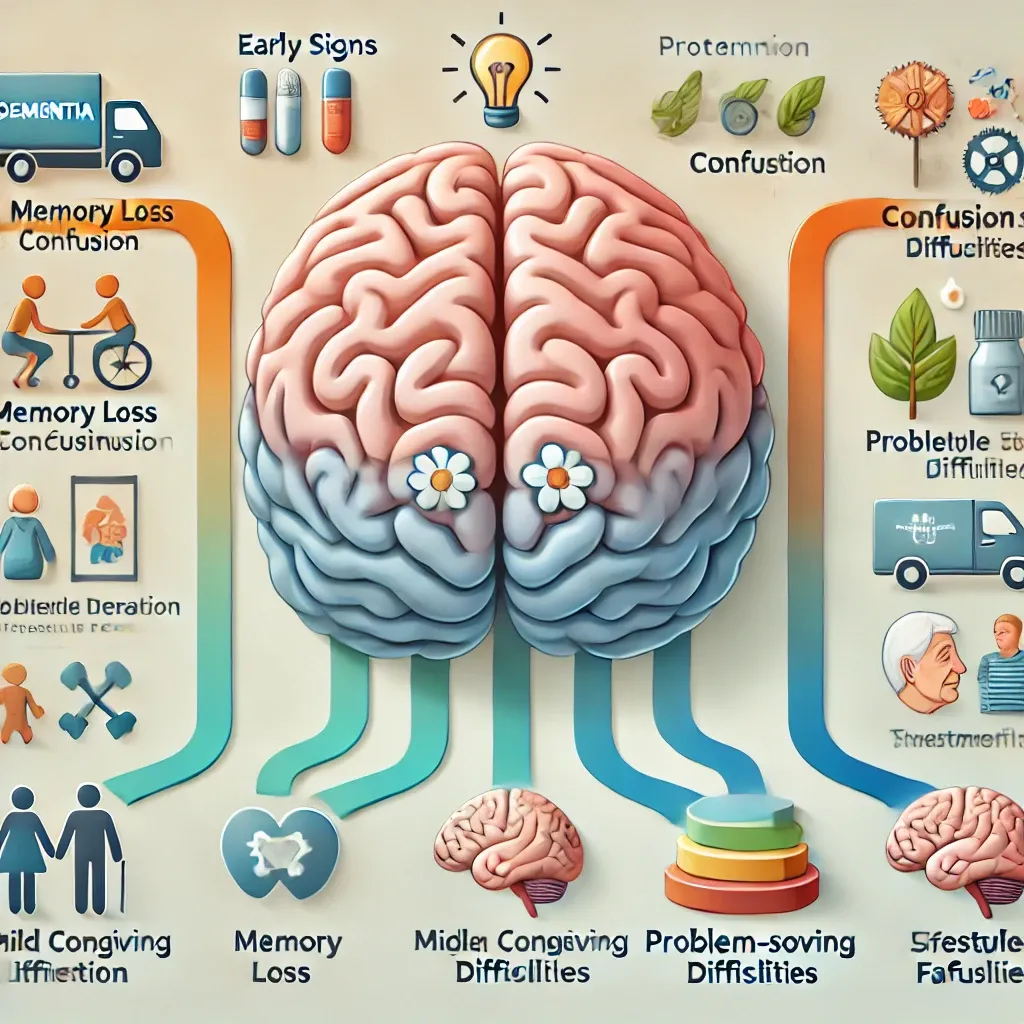Unlocking Clarity: Early Signs, Stages, and Management of Dementia
Dementia refers to a decline in cognitive abilities severe enough to interfere with daily life, often accompanied by memory loss. Early diagnosis is critical in improving quality of life and managing symptoms. Although there is no cure for dementia, timely medical interventions, medications, and therapies can help manage the condition effectively.

What is Dementia?
Dementia is a broad term for the deterioration of cognitive functions, including memory, thinking, reasoning, and problem-solving, to the point where daily activities are affected. While memory loss is a hallmark symptom, dementia also involves challenges with other mental abilities. Early identification and treatment can improve the quality of life for those living with dementia.
Early Signs of Dementia
Detecting dementia early is crucial for timely intervention. Common early symptoms include:
- Memory loss that disrupts daily life.
- Difficulty in planning or problem-solving.
- Confusion about time or place.
- Challenges in completing familiar tasks. Recognizing these signs early can help individuals seek medical advice and begin managing the condition promptly.
Stages of Dementia
Dementia progresses through several stages, which can be summarized as follows:
- Mild Cognitive Impairment (MCI): Memory problems are present but do not significantly interfere with daily life.
- Mild Dementia: Increased memory lapses and difficulties in reading, writing, or making decisions become noticeable.
- Moderate Dementia: Individuals require help with daily tasks, such as dressing and preparing meals.
- Severe Dementia: Full-time care and supervision are necessary as cognitive and physical abilities decline.
Treatment Options for Dementia
While there is no cure for dementia, treatment focuses on controlling symptoms and improving quality of life. Options include:
- Medications: Cholinesterase inhibitors, such as Aricept, can help manage symptoms in some cases.
- Therapies: Cognitive training, physical exercise, and activities that stimulate the mind can slow symptom progression.
- Supportive Care: Professional healthcare providers can guide families on therapies and care strategies tailored to individual needs.
Managing Dementia Symptoms
Symptom management involves a combination of medical treatments, cognitive activities, and lifestyle adjustments:
- Safe Environment: Create a supportive, clutter-free space to minimize confusion and accidents.
- Cognitive Stimulation: Engage in memory games, puzzles, or other mentally stimulating activities.
- Family Involvement: Encourage family members to participate in caregiving to strengthen support networks.
Dementia Care Options
Care options for individuals with dementia vary depending on the stage and severity of the condition:
- Home Care: Suitable for individuals in the early to moderate stages, where care can be provided by family or home health aides.
- Full-Time Care: For severe dementia, full-time supervision and assistance in a care facility or at home become necessary.
Dementia vs. Alzheimer’s
Dementia is an umbrella term for a decline in cognitive abilities, while Alzheimer’s disease is the most common form of dementia. Understanding the distinction is crucial for proper diagnosis and treatment, as some symptoms and progression patterns differ between types of dementia.
Sources:
Alzheimer's Association National Institute on Aging World Health Organization - Dementia

